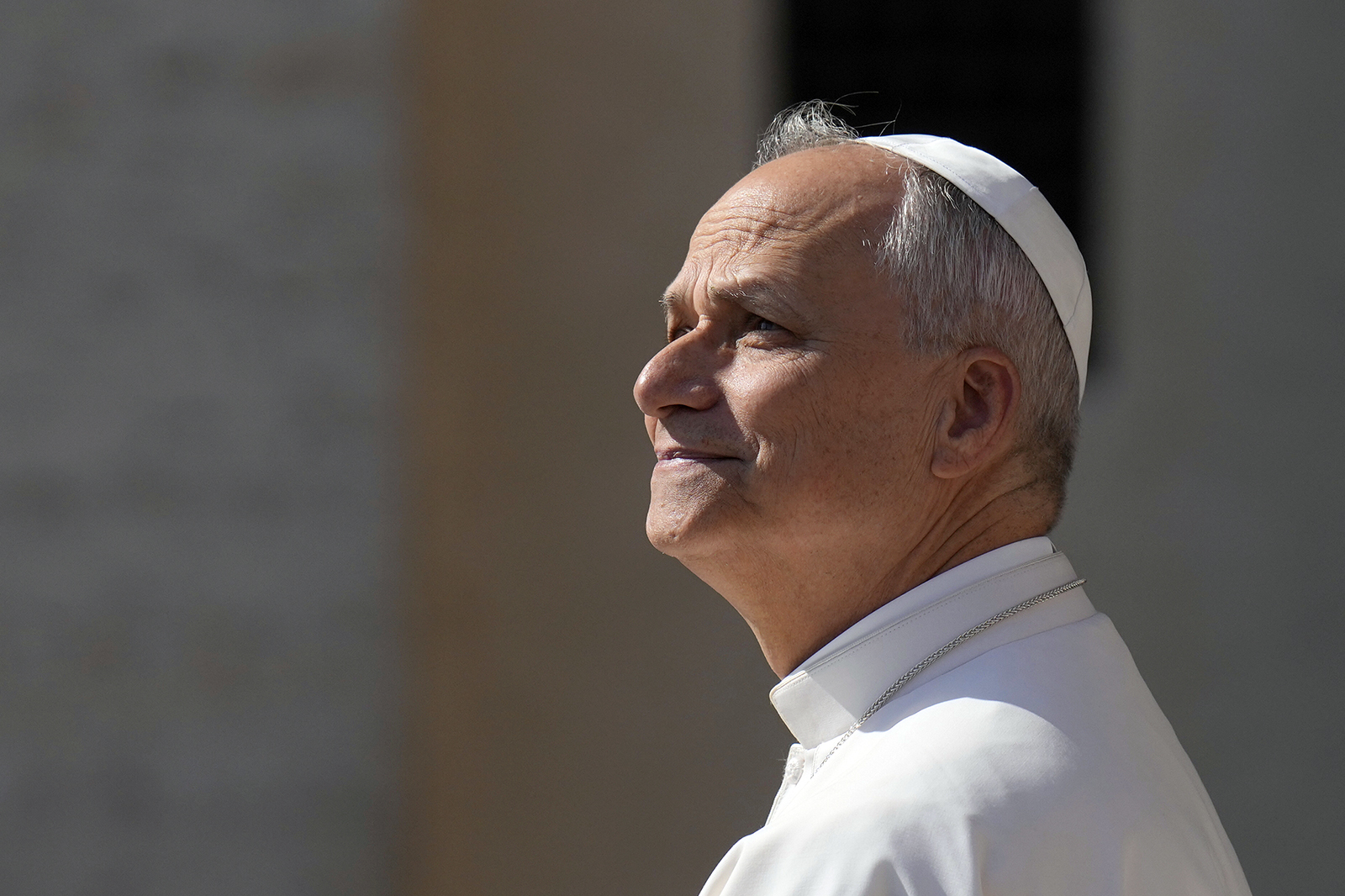
VATICAN CITY (RNS) – On Sunday (Sept. 14), the Catholic news website Crux published excerpts of Pope Leo XIV’s first extended interview with any media outlet, giving the first look at his perspective on the papacy and the challenges facing the church and society. Leo talked about his concerns about income inequality, polarization and the need for peace.
“We have to continue to remind ourselves of the potential that humanity has to overcome the violence and the hatred that is just dividing us more and more,” Leo said in the interview. “We live in times when polarization seems to be one of the words of the day, but it’s not helping anybody. Or if it’s helping anyone, it’s very few when everyone else is suffering.”
The interview, conducted over two sessions in recent weeks and published on the his 70th birthday, offer a first glimpse into Leo’s personality and priorities. In his conversation with Crux’s senior Vatican correspondent, Elise Ann Allen, Leo signaled continuity with his predecessor Pope Francis and the late pontiff’s vision for dialogue and full participation in the church, known as synodality.
Already positioning himself as a pope of reconciliation, Leo reflected on the reasons behind the deep polarization in society and the church today. He pointed to the COVID-19 pandemic, but also a sense of loss of the value of human life as partly responsible for sectarianism and division.
“Add on top of that a couple of other factors, one which I think is very significant is the continuously wider gap between the income levels of the working class and the money that the wealthiest receive,” he said.
Shortly after his election on May 8, the pope said he took the name Leo because he was inspired by Pope Leo XIII, who addressed the stresses put on society by the Industrial Revolution in the late 18th century. Leo XIII’s encyclical “Rerum Novarum” (On Revolutions) laid out the reasons for the church’s support of the working class, fair wages and the right to unionize, while opposing communism and unbridled capitalism.
In the Crux interview, Leo XIV questioned the disproportionate difference in the incomes of modern CEOs and those of their workers, and challenged the extreme wealth of billionaires – and trillionaires such as Elon Musk. “What does that mean and what’s that about? If that is the only thing that has value anymore, then we’re in big trouble,” Leo said.
The pope called synodality, whose its roots are in Latin American church, the “antidote” to the deep divisions in the church and society, describing it as “an attitude, an openness, a willingness to understand.” He said that some church leaders feel “threatened” by synodality, because of what Leo called a mistaken understanding of their authority. He said a synodal church allows each member to play and role and contribute based on their respective vocations as bishop, priest, missionary, lay person or family member.
“It’s an attitude which I think can teach a lot to the world today,” Leo said, “I think this is a way of addressing some of the greatest challenges that we have in the world today. If we listen to the gospel, and if we reflect upon it together, and if we strive to walk forward together, listening to one another, trying to discover what God is saying to us today, there is a lot to be gained for us there.”
Leo said he hoped to continue the process of instilling synodality in the church to build a church that is both united within and engaged with the world. He clarified, as Francis had, that synodality is not synonymous with democracy, “which if we look at many countries around the world today, democracy is not necessarily a perfect solution to everything.”
Leo XIV’s also spoke about the importance of peace in Ukraine. He praised the Holy See’s diplomacy efforts to remain above the fray and offer itself as a bridge for dialogue with all parties involved in conflicts, but he also said that the likelihood of the Vatican hosting peace-talks between Russia and Ukraine is “not as realistic.”
“I think a number of different actors have to push hard enough to make the parties that are at war say, enough is enough, and let’s look for another way to solve our differences,” he said, adding that he has “high hopes for human nature” and the chance for peace.
Leo recognized that the United Nations “has lost its ability to bring people together on multilateral issues” and said that the key to “building bridges is primarily through dialogue.”
In a more personal portion of the interview, Leo talked about his experience in the first months of his papacy. “There’s still a huge learning curve ahead of me,” he said. “The totally new aspect to this job is being thrown onto the level of world leader,” he said.
He said that “the most fundamental role” of the pope is to “confirm others in their faith.”
Asked whether he feels more like a citizen of the United States, where he was born, or Peruvian, where he spent most of his life as a priest and missionary, Leo answered by saying “both/and.” He said his appreciation for the life of the church in Latin America allowed him to understand some of the vision that Francis had for the church.
While he confirmed that he is a fan of the Chicago White Sox baseball team, he said that “as pope, I’m a fan of all teams.” He underlined the importance of being open and friendly even in sports, while adding that when Peru and the United States play against each other in the World Cup he will likely back Peru, “just because of affective bonds.”
The entire interview will appear in Allen’s biography of the pope, “Leo XIV: Citizen of the World, Missionary of the XXI Century,” which will be published in Spanish on Sep. 18 and will available in Portuguese and English in early 2026.
